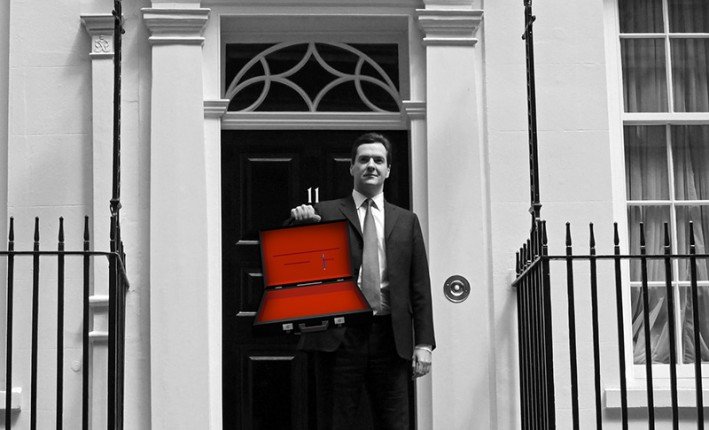George Osborne’s Budget cupboard is virtually empty.
It was finished a week ago in the clearest possible sign that it’s on course to be one of the most forgotten in history.
He’ll single out Britain’s lowest paid parents and workers for the meagre handouts he has to offer.
More people will start paying the top rate of income tax and the Chancellor will announce measures to drive up Britain’s trade exports to boost the UK economy.
Mr Osborne has virtually no room for manoeuvre and is determined to deliver a “steady as she goes” statement.
His political aim is to remind voters they must vote Conservative at next year’s General Election if they want the recovery to continue.
He’ll avoid any significant giveaways for fear of making voters think Britain’s economic crisis is over.
Instead, the Chancellor will confound his own true blue supporters by dishing out what little he has to Britain’s lowest paid workers.
He will tell his MPs they cannot afford to hand Ed Miliband ammo to attack the Conservatives for backing the rich over the poor.
He’ll raise the level at which people starting paying income tax by £500, meaning a £100-a-year tax break to the poorest workers.
Crucially, the move won’t come into force until after the next General Election, leaving voters in no doubt they’ll need to keep David Cameron in No. 10 if they want to benefit.
At the same time, he’ll allow more middle-income earners to slip into the 40p tax bracket by cutting the threshold for the upper rate.
That’ll mean 1.1million more people paying the top rate of tax since Mr Cameron came to power in 2010.
Mr Osborne believes the twin moves are needed to silence Labour’s charges that the Tories are only interested in looking after their “rich” friends.
The Chancellor will find a relatively small giveaway for working mums and dads – a £2,000-a-year tax break for 1.9million working families amounting to a fifth of childcare bills.
But couples earning north of £150,000-a-year won’t benefit.
Mr Osborne risks infuriating critics on the Left by claiming living standards are rising.
A Treasury document published today says there are more people being employed, wages are rising and the private sector is on the march.
Within weeks, he’ll say, the UK economy will be larger than it was in 2008 – a sign that his stewardship of the nation’s finances has worked and he can be trusted to keep it on course.
Mr Osborne has said: “The message I’ll be giving in the Budget is that the economic plan is working but that the job is far from done.”
The Chancellor is determined to take steps to fuel further growth in Britain’s economy, already predicted to outstrip that of any other similar country.
He’s tipped to cut energy prices for industry to free up more cash for expansion.
He’ll find more money for Britain’s 9,000 medium-sized firms to sell overseas – aiming to hit £1trillion foreign sales by 2020.
UK Trade and Investment will be given extra funds to push for the growth which will mean 10% increases each year for the next seven.
Ministers will also hope to lure sovereign wealth funds into backing a string of major infrastructure projects to make Britain ready for the future.
They are desperate for a £375billion shopping list of roads, sewers, railways and energy projects to go ahead but need overseas investors to fund them.
And then there’s the usual list of rises.
Cigarettes and alcohol will go up by 2% above inflation.
Businesses will get a pre-election boost next April with a cut in corporation tax to 20%.
The Chancellor has already announced he’ll extend his Help to Buy scheme as it’s seen as a powerful vote winner in No. 10.

